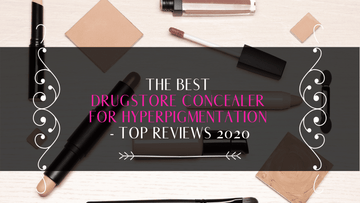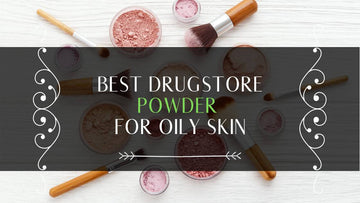
Airbrush makeup can be a great option for sensitive skin when chosen and applied carefully. While the lightweight, customizable coverage provides clear benefits, those with easily irritated complexions need to be aware of potential drawbacks like spray irritation and pore-clogging.
By selecting non-comedogenic, allergy-friendly formulas free of common irritants and oils, sensitive skin types can reap the airbrushed look. Careful prep and removal steps also prevent adverse reactions.
When used with proper technique and care, airbrush makeup allows those with sensitivities to achieve a flawless, even finish without inflammation or flares.
This article explores the pros and cons of airbrush makeup for sensitive skin in depth, providing tips for smart ingredient selection, gentle application and removal, and extra winter skin care.
Also covered are the common allergens to watch for, along with pointers for making airbrush work for oily yet reactive complexions.
Is Airbrush Makeup Good for Sensitive Skin?
Yes, airbrush makeup is generally good for sensitive skin. It is applied in a very fine mist, which helps to avoid clogging pores and irritating the skin.
Airbrush makeup is also often formulated with hypoallergenic ingredients, which means that it is less likely to cause allergic reactions.
However, it is important to note that not all airbrush makeup products are created equal. Some products may contain ingredients that are irritating to sensitive skin, such as alcohol, fragrance, and essential oils.
It is important to read the product label carefully before using any airbrush makeup product, and to choose products that are specifically designed for sensitive skin.
Potential Benefits of Airbrush Makeup for Sensitive Skin
There are a few key advantages that make airbrush makeup appealing for those with easily irritated complexions:
- Lightweight formulas. Airbrush foundations and concealers are specially formulated to be thin and lightweight. This means they look natural on the skin and don't feel heavy or greasy. Thick, creamy formulas can exacerbate breakouts and rashes.
- Customizable coverage. With airbrush makeup, you control the coverage. Those with sensitivities often only need sheer to medium coverage rather than a full-coverage cake effect. Airbrushing allows you to build up product only where needed.
- Minimal ingredients. Airbrush makeup tends to have fewer ingredients than traditional liquid or powder formulas. With fewer ingredients, there's less potential for an irritating reaction. However, always check for problematic ingredients.
- Hygienic application. Airbrushing utilizes pressurized air rather than brushes or sponges, so you avoid cross-contamination. This makes it ideal if you're prone to acne breakouts.
- Breathability. The thin veil of color that airbrushing provides allows skin to breathe comfortably. Thick makeup can suffocate skin, trapping oil and bacteria.
Potential Risks of Airbrush Makeup for Sensitive Skin
While airbrushing has its perks, there are some drawbacks to consider:
- Triggers allergies. Airbrush makeup contains lightweight silicones to create an ultra-smooth finish. Silicone allergies are common and may cause stinging, redness, and breakouts. Always patch test.
- Spray irritation. The pressurized spraying can be abrasive for some. The blunt force of airbrush makeup can trigger rosacea flares or break capillaries. Proper technique is key.
- Clogs pores. Although airbrush makeup feels weightless, it still sits on the surface of skin. This can lead to clogged pores and acne in those prone to breakouts. Be sure to properly prep and cleanse skin.
- Masks symptoms. Full coverage formulas, airbrush or not, can hide underlying issues like dermatitis. It's important to still treat and care for skin health.
How to Choose Airbrush Makeup for Sensitive Skin
When purchasing airbrush makeup for sensitive skin, keep these tips in mind:
- Opt for oil-free, non-comedogenic formulas made for acne-prone skin. Avoid oils.
- Check the ingredients list and avoid products with dyes, fragrances, and alcohol which can irritate.
- Look for brands that cater to sensitive skin. Many offer formulas free of preservatives and common irritants.
- Stick to mineral formulas as opposed to chemical makeup which can be harsh. Mineral pigments also provide sun protection.
- Purchase single pan refills. This allows you to customize and mix your own sensitivities-friendly palette.
Tips for Applying Airbrush Makeup to Sensitive Skin
Careful application is key to avoiding reactions. Follow these tips:
- Always start with a cleansed, toned, and moisturized face. Exfoliate regularly to prevent buildup.
- Use a primer made for sensitive skin before airbrushing to create a smooth protective layer. Avoid silicone-based primers.
- Opt for an aloe vera-based setting spray to soothe and hydrate skin pre-makeup.
- Keep the airbrush 6 inches from your face during application to avoid irritation from the pressurized spraying.
- Work in sections and lightly layer product, building up coverage where desired. Avoid spraying one area for too long.
- Blot skin with a tissue between passes with the airbrush to absorb excess product sitting on the surface of skin.
- Mix a drop of facial oil into your foundation to create a more emollient, hydrating formula.
How to Remove Airbrush Makeup from Sensitive Skin
It's essential to gently cleanse away makeup at the end of the day. Take care by:
- First, use a soft, oil-based makeup remover to dissolve airbrush makeup. Avoid makeup wipes with alcohol and fragrances.
- Follow with a gentle, non-foaming cleanser free of sulfates and parabens which can strip skin. Choose something with soothing oils and probiotics.
- Use a konjac sponge in gentle circular motions as you cleanse to provide light exfoliation. Konjac has natural antibacterial properties to prevent breakouts.
- Rinse with lukewarm water and pat dry. Always apply a moisturizer afterward to restore hydration and suppleness.
Is Airbrush Makeup Good for Sensitive Skin in Winter?
Airbrush makeup can work well in winter for sensitive skin when care is taken to prevent dryness. The key is balancing the lightweight formulas with extra hydration.
Prep skin with a hydrating serum containing hyaluronic acid which acts like a moisture magnet. Follow with a rich face oil before airbrushing. Focus on dry areas like the cheeks.
Opt for a dewy airbrush foundation containing emollients. Matte formulas can emphasize flakiness. Spritz with an aloe-based setting spray after makeup application.
Exfoliate regularly to keep skin smooth, but avoid harsh scrubs during the winter which can worsen dryness. A warm washcloth massage gets the job done gently.
During cold snaps, blend a few drops of facial oil into your airbrush foundation daily for extra nourishment. Oils also create a barrier to seal in moisture.
Can You Be Allergic to Airbrush Makeup?
It's possible to develop an allergy or irritation from airbrush makeup formulas and application, including:
Product Ingredients: Common airbrush makeup allergens include silicones, chemical sunscreens, synthetic dyes and pigments, and added perfumes. Nickel in mineral formulas can also cause issues for some.
Acrylates: Acrylates are polymers that provide the ultra-thin, flexible finish of airbrush makeup. Allergic contact dermatitis may develop over time with repeated exposure.
Application Method: Some sensitive skin types experience stinging, redness, and even broken capillaries from the pressurized spraying action.
To prevent allergic responses, always patch test airbrush makeup along the jawline for at least 24 hours. Introduce one new product at a time. Keep makeup stored in a cool, dry place to prevent mold growth which can also trigger allergies.
Is Airbrush Makeup Good for Oily Skin?
Airbrush makeup is often touted as ideal for oily skin since it provides long-lasting, shine-free coverage. However, it still requires careful application and maintenance.
Potential perks include the lightweight feel, breathable application, and pore-clogging prevention if applied lightly. Airbrush makeup also wears beautifully on the high shine areas common with oily skin like the t-zone.
However, those with overactive sebaceous glands still need to prep skin well to avoid greasiness breaking through. Use oil-absorbing products and let them fully settle before airbrushing.
You'll also need to properly cleanse away makeup to keep pores clear. Blotting through the day helps control excess oil production. Use powder or blotting papers, avoiding rubbing or over-stripping the skin.
Read our complete guide on "Is airbrush makeup good for oily skin?" for detailed facts.
Overall, airbrush can create a flawless canvas as long as oily skin is prepped and cared for thoroughly. A professional application also makes a difference in the right techniques.




